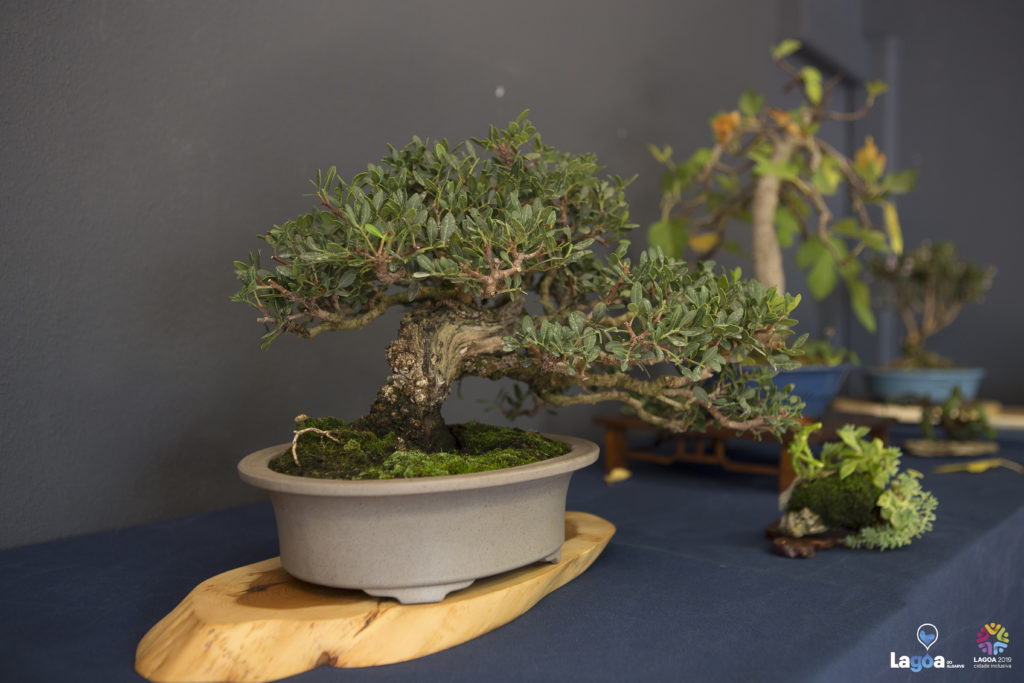The Nature Interpretation Center at Sítio das Fontes hosted, on Sunday, 13 October, a Bonsai Workshop with Mediterranean Species.
A committed group of 15 participants took the first steps in the complex universe of Bonsai cultivation techniques. The pomegranate was the species chosen by the masters of the Clube Bonsai do Algarve, to transmit the basic teachings of this very special form of cultivation.
The Municipality of Lagoa, in partnership with the Clube Bonsai do Algarve, thus associated itself with this ancient art as a way to spread the taste for the use of Mediterranean species for ornamental and landscape purposes.
The morning was dedicated to the theoretical part, relating to the art and techniques necessary to create the Bonsai and an introduction to the fundamentals of Botanical Systematics and Mediterranean ecosystems.
During the afternoon, the participants put into practice some techniques and, finally, everyone took home a pomegranate tree already “worked” during the workshop, which, «with technique, skill, patience and time, will certainly transform into a true Bonsai », stress the organizers.
In parallel, there was an exhibition open to the public, consisting of copies belonging to members of the Clube Bonsai do Algarve.
The set of Bonsai exhibited at the Nature Interpretation Center at Sítio das Fontes served to explain the origins and the main techniques involved in obtaining true living works of art, many of them from species of our native flora.
«Vineyards, olive groves, cork oak forests, almond groves and other dryland orchards, among various ancestral and sustainable forms of land use, are unavoidably part of a landscape that we should be proud of, cherish and develop, and which should be part of what defines us as Algarve, Portuguese and Mediterranean», add the organizers.
«The use of native species, adapted to our climate, soil and landscape conditions, as well as those that identify with our culture, for ornamental and landscape purposes can help to explain who we are, albeit through an art that comes to us. of the East'.
This was the second of two workshops that, in 2019, are part of a cycle dedicated to Mediterranean plants.



















Comments